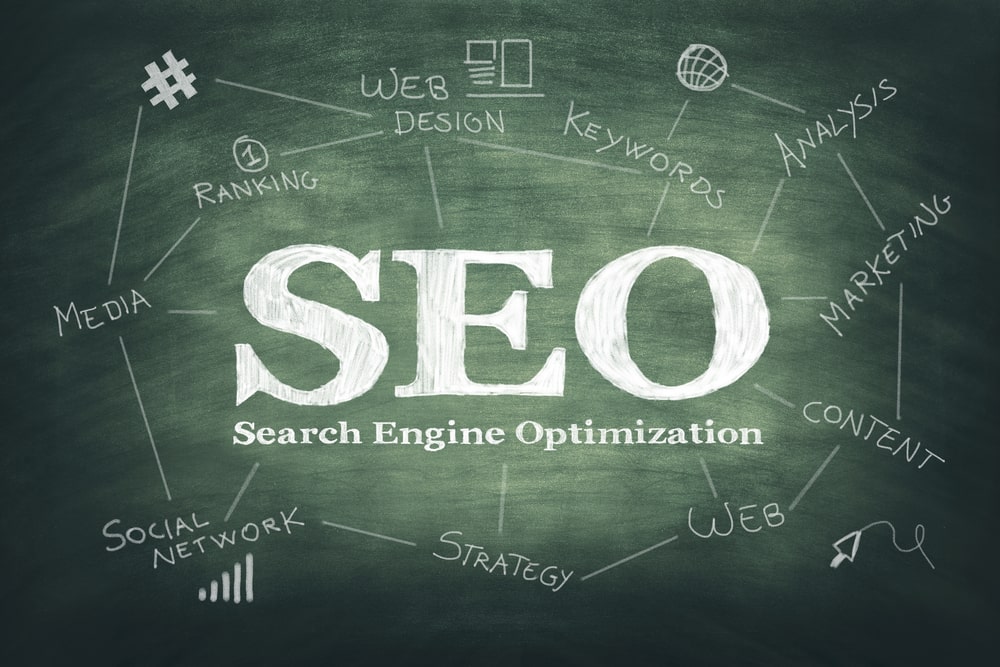What is SEO?
SEO, or Search Engine Optimization, is optimizing your website to improve its visibility in search engine results pages (SERPs). The goal is to rank higher for specific keywords or phrases relevant to your business, driving more organic (non-paid) traffic to your website.
In this beginner’s guide to SEO, we’ll break down the basics to help you understand how it works and why it’s essential for your online success.
To start, let’s focus on the two main components of SEO: on-page and off-page optimization.
On-Page SEO
On-page SEO involves optimizing the content and structure of your website, making it user-friendly and search engine-friendly.
Keyword Research
Identify the most relevant and valuable keywords for your business. These are the words or phrases potential customers are likely to use when searching for your products or services.
Content Creation
Develop high-quality, informative, and engaging content targeting your chosen keywords. Content can include blog posts, articles, videos, infographics, and more.
Meta Tags
Meta tags are HTML elements that provide information about a webpage to search engines and website visitors. Optimize meta tags like title tags, meta descriptions, and header tags to accurately describe your content and include your target keywords.
URL Structure
Create descriptive and easy-to-understand URLs that include your target keywords. For example, if you are a therapist who services clients who struggle with anxiety, you want to create a Services page listing all your services and a sub-page discussing anxiety. The URL structure for that would be www.domain.com/services/anxiety/.
Internal Linking
Establish a logical link structure within your website, making navigating easy for users and search engines. For example, suppose you cover a topic that briefly covers/overlaps with another topic you have written about. In that case, you want to internally link to that article as it would be deemed relevant.
Off-Page SEO
Off-page SEO focuses on building your website’s authority and reputation through external efforts.
Link Building
Acquire high-quality, relevant backlinks from other websites. These links act as “votes” of confidence in your content, signaling to search engines that your site is a valuable resource.
Social Media Marketing
Increase your brand’s visibility and engage with your target audience on social media platforms like Facebook, Instagram, Twitter, and LinkedIn.
Online Reputation Management
Monitor and manage your brand’s online presence, addressing negative reviews or feedback and promoting positive content.
SEO for Your Business
SEO is essential because it helps increase your website’s visibility in search results, attracting more organic traffic. The higher your website ranks, the more likely users are to click on your site, leading to increased brand awareness and potential sales. With the majority of users ignoring paid ads and focusing on organic results, neglecting SEO can put you at a significant disadvantage against your competitors.
Moreover, SEO is cost-effective compared to other marketing strategies like pay-per-click (PPC) advertising. While PPC can provide immediate results, it can be expensive, and your visibility disappears the moment you stop paying. In contrast, SEO requires an initial investment but can generate long-term, sustainable traffic to your website.
Trust Digital Footprint with Your SEO Needs
At Digital Footprint, we understand the importance of SEO and are here to help you navigate the complexities of optimizing your website. Our experienced professionals can assist you with keyword research, content creation, technical optimization, and more.
Whether you’re just starting or looking to take your SEO strategy to the next level, we’re committed to helping you grow your online presence and achieve your business goals. Contact us today to learn more about how we can help you succeed in the world of SEO.
